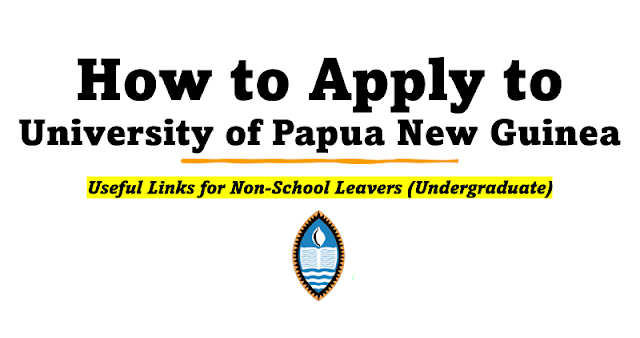Founding Fathers and Founding Women of Papua New Guinea who were instrumental in the early years of Papua New Guinea Constitution and Independence. These individuals played crucial roles in shaping Papua New Guinea’s destiny during the Constitution planning stages, self-government and its transition to independence and early years of independence.
Founding Fathers
The independence of Papua New Guinea in 1975 was the culmination of decades of struggle and political activism. A number of key figures, often referred to as the "Founding Fathers," played pivotal roles in the nation's transition to self-governance. These individuals, representing diverse regions and backgrounds, contributed significantly to the drafting of the constitution, the establishment of democratic institutions, and the shaping of the nation's early policies.
Here, we take a look at the most prominent Founding Fathers and Women Leaders who were at the forefront of Papua New Guinea’s Independence:
- Sir Michael Thomas Somare: As the first Prime Minister of Papua New Guinea, Somare led the nation to independence and played a dominant role in its early development.
- Sir John Guise: As the first Governor-General, Guise served as a symbol of national unity and stability.
- Sir Albert Maori Kiki: A skilled diplomat and politician, Kiki contributed to the nation's international relations and domestic development.
- Sir Julius Chan: A key figure in the early years of independence, now known as the last man standing, Chan held various ministerial positions and played a significant role in shaping government financial and monetary policies.
- Sir Paulias Matane: A distinguished public servant and Governor-General from East New Britain Province, Matane symbolized public service and sovereignty.
- Sir Barry Holloway: A representative of the House of Assembly, Holloway participated actively in constitutional discussions.
- Sir Tore Lokoloko: From the Gulf Province, Lokoloko advocated for regional representation and the interests of his province.
- Sir Sinake Giregire: From the highlands region, Giregire's contributions to the constitutional process were significant.
- Sir Anthony Siaguru: As a lawyer and politician, Siaguru played a role in drafting the constitution.
- Charles Lepani: Headed the National Planning Office. Contributed to mining industry development. Served as PNG’s ambassador to the European Union and high commissioner in Australia.
- Mekere Morauta: Prime Minister (1999–2002). Restored economic stability. Led post-independence financial infrastructure development.
- Rabbie Namaliu: Close ally of PNG’s first prime minister, Michael Somare. Served as PNG’s fourth prime minister (1988–1992). Previously foreign minister and head of the Public Service Commission.
- Sir Ignatius Kilage: An advocate for indigenous rights, Kilage contributed significantly to the development of Papua New Guinea's legal framework. Sir John Kaputin: Kaputin's legal expertise influenced the nation's legal system.
- Sir Paul Lapun: From the New Guinea Islands region, Lapun advocated for regional representation and cultural diversity.
- Sir Tei Abal: A prominent politician from the Enga Province, Abal held ministerial positions and contributed to early governance. Sir
- Matiabe Yuwi: From the Upper Highlands region of Papua New Guinea, Yuwi participated in constitutional discussions.
- Sir Henry Chow: A philanthropists, businessman and politician, Chow contributed to local businesses, economic development and governance.
- Sir Iambakey Okuk: From the Highlands region of Simbu Province, Okuk was a vocal advocate for local interests.
- Sir Pita Lus: From the Sepik region, he was a key figure in the pre-independence period, Lus contributed to the nation's political landscape.
- Sir John Momis: As deputy chairman of the Constitutional Planning Committee, Momis played a vital role in shaping the Constitution. He is one of the few surviving members of his era.
- Sir Cecil Abel: Abel's role in the early political movement was crucial,. He was a prominent member of the Bully Beef Club and Pangu Pati, the brain behind Pangu’s economic & development policy – one nation, one country, unity in diversity.
- Oala-Oala Rarua: Rarua was part of the collective effort that shaped Papua New Guinea's destiny during its transition to independence and was a prominent member of the infamous Bully Beef Club.
Women Leaders
While the majority of the Founding Fathers were men, several women also played significant roles in the independence movement and the early years of self-government. These women, often facing significant challenges due to gender discrimination, paved the way for future generations of female leaders.
Among the most notable women leaders were:
- Dame Josephine Abaijah: A trailblazer, Abaijah became the first woman elected to the House of Assembly in 1972.
- Hon Nahau Rooney: Elected in 1977, Rooney contributed to women's representation in PNG's parliament.
- Hon Waliyato Clowes: From the Western Province, she was elected to parliament in 1977, Clowes played a significant role in early post-independence politics.
- Dame Carol Kidu: A prominent female leader and wife of Sir Buri Kidu, the first Governor-General after independence, Kidu served in parliament from 1997 to 2012.




